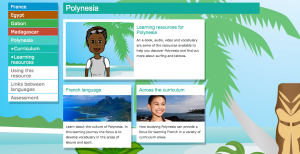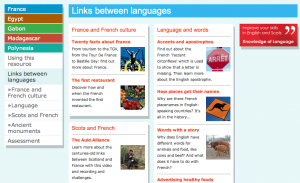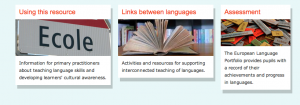I wholeheartedly believe that learning a language shouldn’t be a ‘bolt on’ but part of the curriculum as a whole, and I am therefore always on the look out for new ideas.
I found this short video clip on Youtube earlier and it started me thinking. Again! httpv://youtu.be/58IoBEoNyWQ
Whilst I’m not sure that this is something that could be done at the moment given the weather reports I’m seeing, it’s certainly an interesting idea and it could be completed using the second clip. Just use a stopwatch and count for 10 or 60 seconds then complete the sum to find out how hot it was when that film was recorded.
httpv://youtu.be/CQFEY9RIRJA
I’ve blogged before about teaching Maths in Spanish and I also taught Maths in Spanish during my last observation at WCPS. I can’t believe I didn’t blog it but I’ve uploaded the plan and resources below.
table names (2D shapes in Spanish)
Lesson plan – Razones y proporciones
Worksheet for círculos y triángulos
Worksheet – pentágonos y cuadrados
Since then I’ve found a few more things that look quite useful.
 ¿Quién quiere pizza? is a series of lessons by Cynthis Lanius on fractions. It’s also available in English. Each ‘lesson’ gives a short explanation then poses four or five multiple choice questions. Answer the questions and then receive your score at the bottom of the page including the correct answers.
¿Quién quiere pizza? is a series of lessons by Cynthis Lanius on fractions. It’s also available in English. Each ‘lesson’ gives a short explanation then poses four or five multiple choice questions. Answer the questions and then receive your score at the bottom of the page including the correct answers.
Cynthia also offers some counting activities in Spanish that you could easily use with much younger learners, counting things, saying which is more, and completing sequences. And finally, a more advanced type of Maths linked to Science – in La tina caliente learners work on interpreting graphs
 Then there’s Maggie’s Earth Adventures. These activities from Scholastic are also offered in both English and Spanish.
Then there’s Maggie’s Earth Adventures. These activities from Scholastic are also offered in both English and Spanish.
In El Dilema de Dude you must rescue Dude the dog from the roof by solving sums in Spanish. Every sum solved takes your helicopter closer to Dude. You can choose which operation you wish to practice – or you can choose a mix – and also the level at which you play.
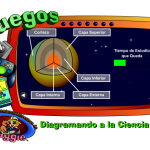
In a similar vein, in ¡Alrededor del Mundo en 80 segundos! you travel around the world by solving sums. You must do it quickly or you’ll not make it home!
And then there’s a brilliant Science activity that involves labelling. In Diagramando a la ciencia learners see a diagram and then have to label it for themselves. Included are things like parts of a plant, the layers of the earth and parts of a fish. Good resources to use to reinforce learning.
There are others activities here too worth investigating – code breaking, a Spanish vocabulary game and a grammar game too.
Maths glossary (far more information than you’d need in a primary classroom!)
much more simple maths terms
Logic puzzles for Year 7 from the inimitable Rachel Hawkes
On the Juegos Educ.ar site, Cuenta con cuentos and Cuentos y leyendas are both word puzzles. Figuras geométricas is a simple matching activity.
And how about the Matemáticas section here for some simple fun activities, or the site of Colegio Público San José de Calasanz for some Maths appropriate for KS2.
And finally, lots of activities here on RinconMaestro plus some good word puzzles – Problemas – on Aprendiendomates.
How’s that to keep you going? Need to find more science links now…


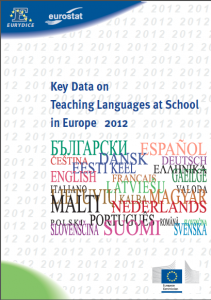
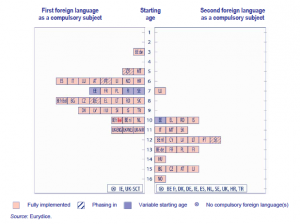
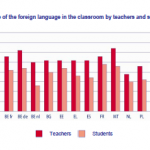


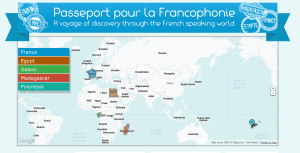
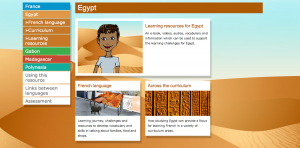 And looking at the
And looking at the 